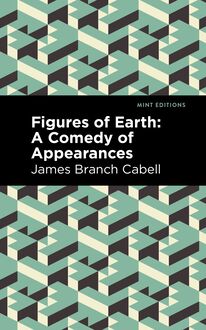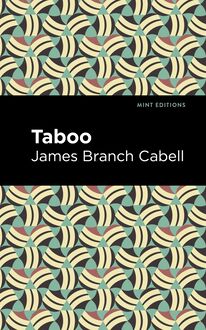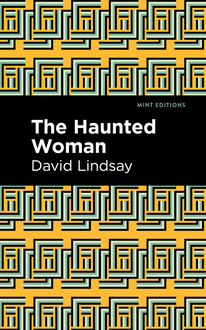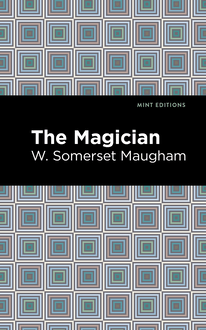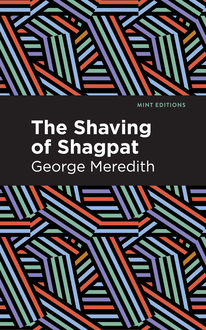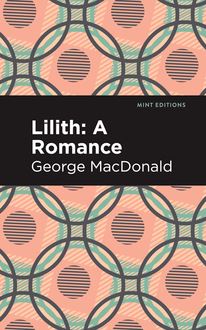-
 Univers
Univers
-
 Ebooks
Ebooks
-
 Livres audio
Livres audio
-
 Presse
Presse
-
 Podcasts
Podcasts
-
 BD
BD
-
 Documents
Documents
-
- Cours
- Révisions
- Ressources pédagogiques
- Sciences de l’éducation
- Manuels scolaires
- Langues
- Travaux de classe
- Annales de BEP
- Etudes supérieures
- Maternelle et primaire
- Fiches de lecture
- Orientation scolaire
- Méthodologie
- Corrigés de devoir
- Annales d’examens et concours
- Annales du bac
- Annales du brevet
- Rapports de stage
La lecture à portée de main
Vous pourrez modifier la taille du texte de cet ouvrage
Découvre YouScribe en t'inscrivant gratuitement
Je m'inscrisDécouvre YouScribe en t'inscrivant gratuitement
Je m'inscrisEn savoir plus
Vous pourrez modifier la taille du texte de cet ouvrage
En savoir plus

Description
When George Neville vanishes while searching for King Solomon’s diamond mines in Africa, his brother, Sir Henry Curtis, knows that he cannot find his brother without help. Said to be located in an unexplored and dangerous region, Curtis seeks out Allan Quatermain, an esteemed hunter and explorer. However, Quatermain is reluctant to help, due to the dangerous nature of the rescue mission, and out of concern for his son, who would be defenseless if Quatermain was unable to return. After making a deal to ensure his son’s wellbeing in the event of an untimely death, Quatermain and Curtis start to assemble an expedition group. With the help of an old map said to have been used by a man who claimed to have found King Solomon’s treasure, Quatermain and Curtis embark on a perilous rescue mission with their crew. As they trek across unfamiliar land with low supplies, they struggle to overcome the harsh conditions of the terrain, causing tragic accidents and breeding doubt that they will make it back home alive. But when they stumble into an unrelenting cave, the group of explorers make a shocking discovery and meet a native group on the brink of a civil war, complicating their mission even further.
First published in 1885, King Solomon’s Mines by H. Rider Haggard was an innovative novel of the Victorian era, and is considered to be the novel that founded the lost world genre. King Solomon’s Mines has since inspired many major authors, and adaptations in film, comics, and radio. Meant to be enjoyed by all ages, King Solomon’s Mines caters to a wide audience and delivers an exciting narrative full of wit and imagination that remains relevant and fun for contemporary readers.
This edition of King Solomon’s Mines by H. Rider Haggard features a new, eye-catching cover design and is printed in a font that is both modern and readable. With these accommodations, King Solomon’s Mines caters to a contemporary audience while preserving the original innovation and adventure of H. Rider Haggard’s work.
Sujets
Informations
| Publié par | Mint Editions |
| Date de parution | 02 mars 2021 |
| Nombre de lectures | 0 |
| EAN13 | 9781513278018 |
| Langue | English |
| Poids de l'ouvrage | 1 Mo |
Informations légales : prix de location à la page 0,0500€. Cette information est donnée uniquement à titre indicatif conformément à la législation en vigueur.
Extrait
King Solomon’s Mines
H. Rider Haggard
King Solomon’s Mines was first published in 1885.
This edition published by Mint Editions 2021.
ISBN 9781513277608 | E-ISBN 9781513278018
Published by Mint Editions ®
minteditionbooks .com
Publishing Director: Jennifer Newens
Design & Production: Rachel Lopez Metzger
Project Manager: Micaela Clark
Typesetting: Westchester Publishing Services
C ONTENTS I. I M EET S IR H ENRY C URTIS II. T HE L EGEND OF S OLOMON ’ S M INES III. U MBOPA E NTERS O UR S ERVICE IV. A N E LEPHANT H UNT V. O UR M ARCH INTO THE D ESERT VI. W ATER ! W ATER ! VII. S OLOMON ’ S R OAD VIII. W E E NTER K UKUANALAND IX. T WALA THE K ING X. T HE W ITCH -H UNT XI. W E G IVE A S IGN XII. B EFORE THE B ATTLE XIII. T HE A TTACK XIV. T HE L AST S TAND OF THE G REYS XV. G OOD F ALLS S ICK XVI. T HE P LACE OF D EATH XVII. S OLOMON ’ S T REASURE C HAMBER XVIII. W E A BANDON H OPE XIX. I GNOSI ’ S F AREWELL XX. F OUND
I
I M EET S IR H ENRY C URTIS
I t is a curious thing that at my age—fifty-five last birthday—I should find myself taking up a pen to try to write a history. I wonder what sort of a history it will be when I have finished it, if ever I come to the end of the trip! I have done a good many things in my life, which seems a long one to me, owing to my having begun work so young, perhaps. At an age when other boys are at school I was earning my living as a trader in the old Colony. I have been trading, hunting, fighting, or mining ever since. And yet it is only eight months ago that I made my pile. It is a big pile now that I have got it—I don’t yet know how big—but I do not think I would go through the last fifteen or sixteen months again for it; no, not if I knew that I should come out safe at the end, pile and all. But then I am a timid man, and dislike violence; moreover, I am almost sick of adventure. I wonder why I am going to write this book: it is not in my line. I am not a literary man, though very devoted to the Old Testament and also to the “Ingoldsby Legends.” Let me try to set down my reasons, just to see if I have any.
First reason: Because Sir Henry Curtis and Captain John Good asked me.
Second reason: Because I am laid up here at Durban with the pain in my left leg. Ever since that confounded lion got hold of me I have been liable to this trouble, and being rather bad just now, it makes me limp more than ever. There must be some poison in a lion’s teeth, otherwise how is it that when your wounds are healed they break out again, generally, mark you, at the same time of year that you got your mauling? It is a hard thing when one has shot sixty-five lions or more, as I have in the course of my life, that the sixty-sixth should chew your leg like a quid of tobacco. It breaks the routine of the thing, and putting other considerations aside, I am an orderly man and don’t like that. This is by the way.
Third reason: Because I want my boy Harry, who is over there at the hospital in London studying to become a doctor, to have something to amuse him and keep him out of mischief for a week or so. Hospital work must sometimes pall and grow rather dull, for even of cutting up dead bodies there may come satiety, and as this history will not be dull, whatever else it may be, it will put a little life into things for a day or two while Harry is reading of our adventures.
Fourth reason and last: Because I am going to tell the strangest story that I remember. It may seem a queer thing to say, especially considering that there is no woman in it—except Foulata. Stop, though! there is Gagaoola, if she was a woman, and not a fiend. But she was a hundred at least, and therefore not marriageable, so I don’t count her. At any rate, I can safely say that there is not a petticoat in the whole history.
Well, I had better come to the yoke. It is a stiff place, and I feel as though I were bogged up to the axle. But, “ sutjes, sutjes ,” as the Boers say—I am sure I don’t know how they spell it—softly does it. A strong team will come through at last, that is, if they are not too poor. You can never do anything with poor oxen. Now to make a start.
I, Allan Quatermain, of Durban, Natal, Gentleman, make oath and say—That’s how I headed my deposition before the magistrate about poor Khiva’s and Ventv ö gel’s sad deaths; but somehow it doesn’t seem quite the right way to begin a book. And, besides, am I a gentleman? What is a gentleman? I don’t quite know, and yet I have had to do with niggers—no, I will scratch out that word “niggers,” for I do not like it. I’ve known natives who are , and so you will say, Harry, my boy, before you have done with this tale, and I have known mean whites with lots of money and fresh out from home, too, who are not .
At any rate, I was born a gentleman, though I have been nothing but a poor travelling trader and hunter all my life. Whether I have remained so I known not, you must judge of that. Heaven knows I’ve tried. I have killed many men in my time, yet I have never slain wantonly or stained my hand in innocent blood, but only in self-defence. The Almighty gave us our lives, and I suppose He meant us to defend them, at least I have always acted on that, and I hope it will not be brought up against me when my clock strikes. There, there, it is a cruel and a wicked world, and for a timid man I have been mixed up in a great deal of fighting. I cannot tell the rights of it, but at any rate I have never stolen, though once I cheated a Kafir out of a herd of cattle. But then he had done me a dirty turn, and it has troubled me ever since into the bargain.
Well, it is eighteen months or so ago since first I met Sir Henry Curtis and Captain Good. It was in this way. I had been up elephant hunting beyond Bamangwato, and had met with bad luck. Everything went wrong that trip, and to top up with I got the fever badly. So soon as I was well enough I trekked down to the Diamond Fields, sold such ivory as I had, together with my wagon and oxen, discharged my hunters, and took the post-cart to the Cape. After spending a week in Cape Town, finding that they overcharged me at the hotel, and having seen everything there was to see, including the botanical gardens, which seem to me likely to confer a great benefit on the country, and the new Houses of Parliament, which I expect will do nothing of the sort, I determined to go back to Natal by the Dunkeld , then lying at the docks waiting for the Edinburgh Castle due in from England. I took my berth and went aboard, and that afternoon the Natal passengers from the Edinburgh Castle transhipped, and we weighed and put to sea.
Among these passengers who came on board were two who excited my curiosity. One, a gentleman of about thirty, was perhaps the biggest-chested and longest-armed man I ever saw. He had yellow hair, a thick yellow beard, clear-cut features, and large grey eyes set deep in his head. I never saw a finer-looking man, and somehow he reminded me of an ancient Dane. Not that I know much of ancient Danes, though I knew a modern Dane who did me out of ten pounds; but I remember once seeing a picture of some of those gentry, who, I take it, were a kind of white Zulus. They were drinking out of big horns, and their long hair hung down their backs. As I looked at my friend standing there by the companion-ladder, I thought that if he only let his grow a little, put one of those chain shirts on to his great shoulders, and took hold of a battle-axe and a horn mug, he might have sat as a model for that picture. And by the way it is a curious thing, and just shows how the blood will out, I discovered afterwards that Sir Henry Curtis, for that was the big man’s name, is of Danish blood. He also reminded me strongly of somebody else, but at the time I could not remember who it was.
The other man, who stood talking to Sir Henry, was stout and dark, and of quite a different cut. I suspected at once that he was a naval officer; I don’t know why, but it is difficult to mistake a navy man. I have gone shooting trips with several of them in the course of my life, and they have always proved themselves the best and bravest and nicest fellows I ever met, though sadly given, some of them, to the use of profane language. I asked a page or two back, what is a gentleman? I’ll answer the question now: A Royal Naval officer is, in a general sort of way, though of course there may be a black sheep among them here and there. I fancy it is just the wide seas and the breath of God’s winds that wash their hearts and blow the bitterness out of their minds and make them what men ought to be.
Well, to return, I proved right again; I ascertained that the dark man was a naval officer, a lieutenant of thirty-one, who, after seventeen years’ service, had been turned out of her Majesty’s employ with the barren honour of a commander’s rank, because it was impossible that he should be promoted. This is what people who serve the Queen have to expect: to be shot out into the cold world to find a living just when they are beginning really to understand their work, and to reach the prime of life. I suppose they don’t mind it, but for my own part I had rather earn my bread as a hunter. One’s halfpence are as scarce perhaps, but you do not get so many kicks.
The officer’s name I found out—by referring to the passengers’ lists—was Good—Captain John Good. He was broad, of medium height, dark, stout, and rather a curious man to look at. He was so very neat and so very clean-shaved, and he always wor
-
 Univers
Univers
-
 Ebooks
Ebooks
-
 Livres audio
Livres audio
-
 Presse
Presse
-
 Podcasts
Podcasts
-
 BD
BD
-
 Documents
Documents
-
Jeunesse
-
Littérature
-
Ressources professionnelles
-
Santé et bien-être
-
Savoirs
-
Education
-
Loisirs et hobbies
-
Art, musique et cinéma
-
Actualité et débat de société
-
Jeunesse
-
Littérature
-
Ressources professionnelles
-
Santé et bien-être
-
Savoirs
-
Education
-
Loisirs et hobbies
-
Art, musique et cinéma
-
Actualité et débat de société
-
Actualités
-
Lifestyle
-
Presse jeunesse
-
Presse professionnelle
-
Pratique
-
Presse sportive
-
Presse internationale
-
Culture & Médias
-
Action et Aventures
-
Science-fiction et Fantasy
-
Société
-
Jeunesse
-
Littérature
-
Ressources professionnelles
-
Santé et bien-être
-
Savoirs
-
Education
-
Loisirs et hobbies
-
Art, musique et cinéma
-
Actualité et débat de société
- Cours
- Révisions
- Ressources pédagogiques
- Sciences de l’éducation
- Manuels scolaires
- Langues
- Travaux de classe
- Annales de BEP
- Etudes supérieures
- Maternelle et primaire
- Fiches de lecture
- Orientation scolaire
- Méthodologie
- Corrigés de devoir
- Annales d’examens et concours
- Annales du bac
- Annales du brevet
- Rapports de stage
